News
-
 Space
SpaceDistant nebulae star in one of the first images from the Rubin Observatory
These are the first public images collected by the Chile-based observatory, which will begin a decade-long survey of the southern sky later this year.
-
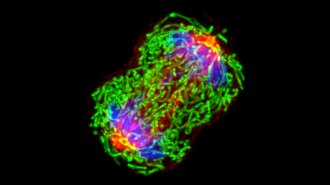 Health & Medicine
Health & MedicineCancer DNA is detectable in blood years before diagnosis
Tiny, newly formed tumors shed small fragments of DNA that are swept into the bloodstream. Future cancer screening tests could detect them early.
By Meghan Rosen -
 Science & Society
Science & SocietyA Supreme Court ruling on nuclear waste spotlights U.S. storage woes
Court ruling allows interim nuclear waste storage in Texas, but the U.S. still has no long-term plan for its 90,000 metric tons of spent fuel.
-
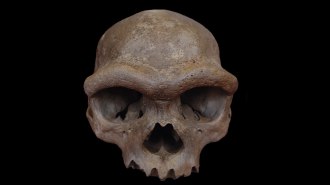 Anthropology
Anthropology‘Dragon Man’ skull may be the first from an enigmatic human cousin
Ancient proteins and DNA may peg a 146,000-year-old Chinese skull as the most complete fossil to date from Denisovans, a puzzling line of Asian hominids.
By Bruce Bower -
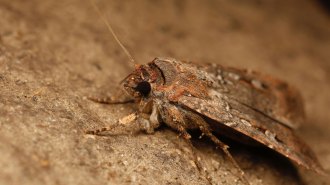 Animals
AnimalsThis moth species may use the Milky Way as its guiding star
Bogong moths migrate up to 1,000 kilometers from Australian plains to mountain caves to escape the summer heat. The stars may help them get there.
-
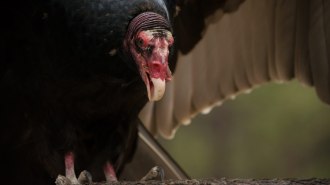 Animals
AnimalsFewer scavengers could mean more zoonotic disease
Scavenger populations are decreasing, a new study shows. That could put human health at risk.
-
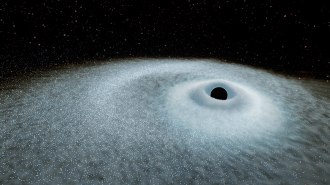 Astronomy
AstronomyBlack hole–shredded megastars power a new class of cosmic explosions
These explosions, called extreme nuclear transients, shine for longer than typical supernovas and get 30 to 1,000 times as bright.
-
 Science & Society
Science & SocietyA common parenting practice may be hindering teen development
A poll shows U.S. parents are wary of unsupervised teens, but lack of independence undermines normal development, experts say.
By Sujata Gupta -
 Climate
ClimateThis paint ‘sweats’ to keep your house cool
This experimental paint reflects sunlight, emits heat and mimics sweating to cool buildings without air conditioning, even in the tropics.
-
 Health & Medicine
Health & MedicineA genetic test may predict which weight loss drugs work best for patients
Variants of obesity-related genes influence how much weight patients lose on specific weight loss drugs like liraglutide, two studies report.
-
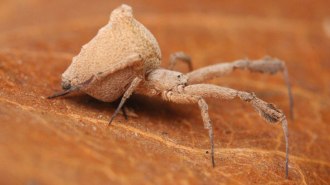 Animals
AnimalsThis spider’s barf is worse than its bite
Most spider species subdue dinner by injecting venom from their fangs. Feather-legged lace weavers swathe prey in silk, then upchuck a killing brew.
By Susan Milius -
 Neuroscience
NeuroscienceAt early ages, autism in girls and boys looks similar
A new study of more than 2,500 children under 5 found little difference in autism symptoms between boys and girls.